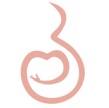Eating right for Breastfeeding
- Dr Tan Thiam Chye

- Jun 18, 2018
- 2 min read
Updated: Apr 25, 2019
Should you avoid certain food types to prevent your baby from developing allergies?

While breastfeeding, eating well to enhance your nutritional status is important. Your calcium store may be depleted for breast milk. In fact, your requirement for certain nutrients (e.g. calories, protein and calcium), are much higher during breastfeeding. So if you were conscious of the nutritional value of your diet during pregnancy, there is even more reason for you to do so when breastfeeding!
In general, if you eat a balanced diet with extra 500 calories, you will be able to meet your nutritional needs and support your baby’s growth and development, as well as protect your own nutrient stores. Eat whenever you are hungry and drink when thirsty.
Do you know?
Some alcoholic tonic traditionally associated with good health (e.g. Benedictine Dom) and consumed by mothers post-delivery contains about 40% alcohol. So, 25 ml of alcoholic tonic would be equivalent to 10 g of alcohol (one unit).
Alcohol added to food during cooking does evaporate, but some alcohol will still be left. So, if you are eating dishes cooked in alcohol, for example, red wine chicken, you may wish to refrain from breastfeeding your baby for the next 1–2 hours.
#1 Food to avoid (e.g. eggs, cow milk, nuts or wheat) to reduce my baby's allergies
There is not enough evidence to prove that avoiding some foods reduce baby's risk of developing allergies. However, if there is a strong family history of allergy, I may recommend delaying the introduction of certain food — e.g. eggs, cow's milk and nuts, till the baby is older. You may wish to consult your doctor for more advice when baby is six months old and ready to start solid foods.
#2 Ginger and jaundice during breastfeeding
There is no evidence that ginger will cause baby to be jaundiced. Jaundice is due to the accumulation of bilirubin in the baby's body. Bilirubin is a by-product of red blood cell breakdown, which occurs every day. However, as the newborn baby's liver is immature, bilirubin breakdown is slow, hence leading to accumulation and the characteristic yellow coloration of baby's skin and eyes.
#3. Is it safe to consume artificially sweetened drinks when breastfeeding?
Moderate consumption of approved sweeteners like aspartame, acesulfame and sucralose is considered safe when breast feeding. These sweeteners are used as table top sweeteners, e.g. Equal, Palsweet, are used by food manufacturers in low calories products like drinks, yogurts and milk.
#4. Special diet to boost breast milk production
Traditional food such as unripe papaya cooked with fish has been advocated to increase mother's milk. Fenugreek, also known as "venthaiyem" (in Tamil), "methi" (in Hindi) or "Halba" (in Malay) is the herb that is commonly used in cooking curry. It has been used to increase milk supply traditionally. Fenugreek tea can be taken four times a day by adding three teaspoons of fenugreek seeds into a glass of hot water to improve milk supply.
Fenugreek capsules are available from health food outlets and pharmacies and can be taken as two capsules four times a day or three capsules three times a day to improve milk supply. Fenugreek is considered safe for nursing moms when used in moderation and is listed as GRAS (Generally Recognized As Safe) by US FDA. However, beware that excessive fenugreek may cause diarrhoea.



